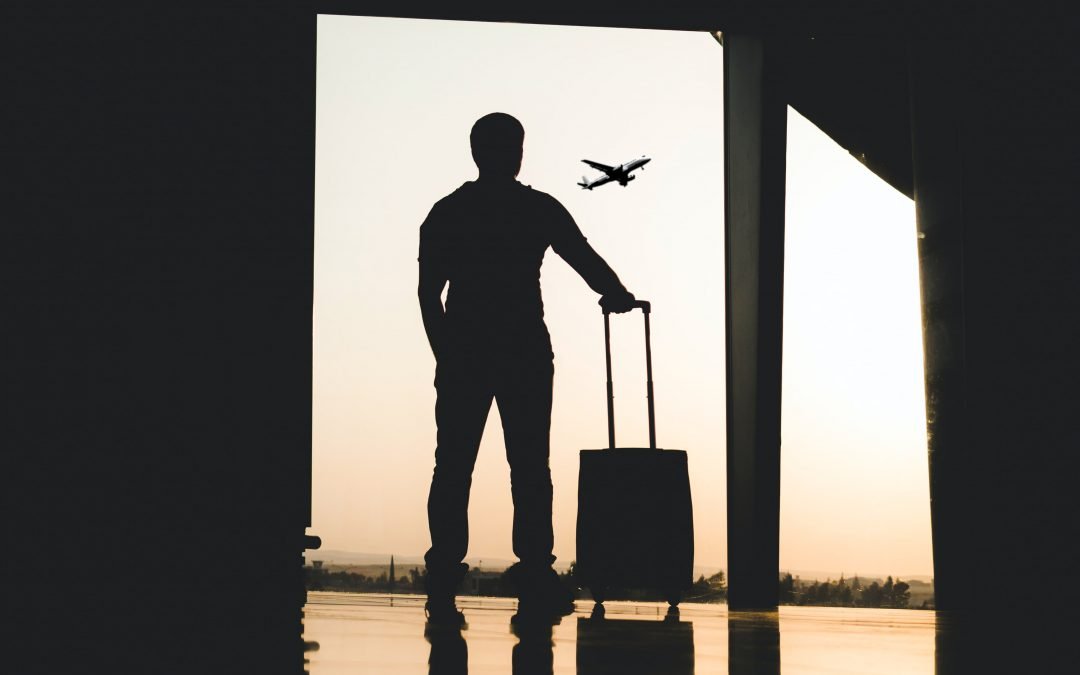A number of industries have been hit very hard by the coronavirus pandemic over the past 12 months.
Many of us might think first of the restaurant and entertainment industries. Mainly because we rarely go out to eat or go to theaters anymore.
But industries that have been clobbered even harder are travel and tourism. Many people who used to fly at least several times a year haven’t gotten on a plane since early 2020. Either for leisure or business.
The same has been true for train and bus travel. Most of us have been leery about being cooped up in a small space for any length of time with people we don’t know.
And we’ve been concerned about the safety of hotels once we arrive at our destination. As well as other public places.
Rebound Hopes Are Fading
A recent headline on the CNN website read this way. “The Travel Industry Is Still Getting Crushed.”
Travel and tourism normally account for 10 percent of the gross domestic product. And a similar share of jobs globally. The tourism industry lost an estimated $1.3 trillion in export revenue last year.
Not too long ago there was hope for a rebound. A number of governments had relaxed some restrictions. But now restrictions are tightening again in response to new coronavirus variants.
In fact, the UK requires travelers from 33 countries to isolate at their own expense for 10 days. Canada already had that policy in effect.
‘More Locked Down’ Than Ever
Alexandre de Juniac is CEO of the International Air Transport Association. He recently summed up the problem for the travel industry this way. “The world is more locked down today than at virtually any point in the past 12 months.
“Passengers face a bewildering array of rapidly changing and globally uncoordinated travel restrictions.”
Airlines are only some of the companies negatively affected by travel restrictions. There are thousands of other companies that rely on travel and tourism.
In 2019, these companies employed 330 million people globally. More than one-half of them have been laid off or furloughed. That’s according to the World Travel and Tourism Council.
CDC Says to Avoid Travel
Fourteen months after the first coronavirus case was identified in the U.S., the CDC still recommends delaying travel.
Their website says, “Travel increases your chance of getting and spreading COVID-19.” And the agency flat-out stated, “Do NOT travel if you were exposed to COVID-19, you are sick or you have tested positive for COVID-19.”
Even those who’ve been fully vaccinated should wait two weeks before traveling.
That’s because it takes time for bodies to build protection after vaccination.
If you have to travel, the CDC suggests getting tested no more than three days prior to travel. And postpone travel if you’re still waiting for results.
Get Tested – Before and After Travel
If you test negative, keep a copy of your test result with you while traveling. And, of course, take precautions to protect yourself. Including mask wearing, social distancing and frequent hand washing.
If you test positive, cancel your travel plans. Also, isolate yourself immediately and follow public health recommendations.
After traveling, get tested again three to five days following your return. Stay home and quarantine for seven days after travel.
Even if you don’t get tested, stay away from at-risk individuals for 14 days after returning.
International Travel a Big Risk
Most of those restrictions are suggestions. But there are also legal requirements involving travel. Including international travel. For example, facemasks are required on planes, buses, trains and other forms of public transportation.
That’s when traveling into, within and out of the country. And in transportation hubs. Including airports, bus stations and train depots.
All air passengers coming to the U.S. are required to have a negative COVID-19 test result. before they board a flight to the U.S. Or documentation of recovery from COVID-19. Including American citizens.
If you have to travel to another country, make sure you know their rules. Some countries demand a quarantine period. Regardless of a negative test result.
International travel is risky right now. Foreign governments can change their restrictions at any time with no notice. Which means you could get turned away when you arrive. Or have a difficult time getting back home.
Pre-Travel Questions to Ask
If you must travel, here are questions to ask yourself:
- Are you, someone in your household or someone you will visit at increased risk for getting very sick from the coronavirus? You could become infected during your trip and spread the virus to others.
- Are hospitals in your community or your destination overwhelmed with coronavirus patients?
- Does your home city or destination have travel restrictions that would affect your plans?
- During the two weeks prior to your travel, have you had or will you have close contact with people you don’t live with? What about the people you will visit?
- Do your plans include travel that might make staying six feet apart challenging? Such as air, bus or train travel?
The downturn for the travel and tourism industry is likely to continue. Some are predicting normalcy will not return until 2023.
In the meantime, avoid travel if you can. If you can’t avoid it, take every precaution possible. We hope and pray you stay safe.


